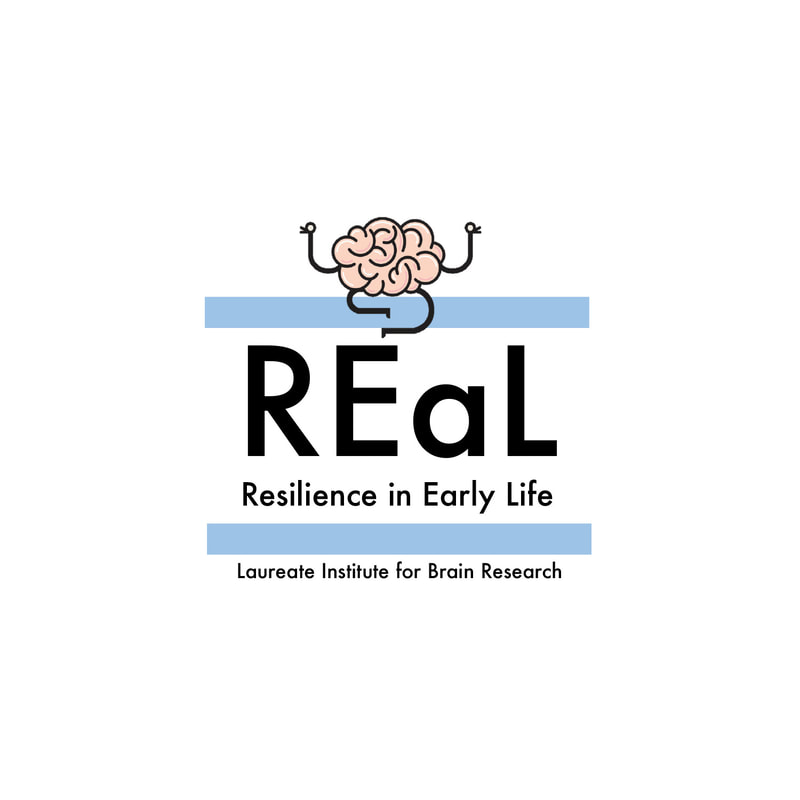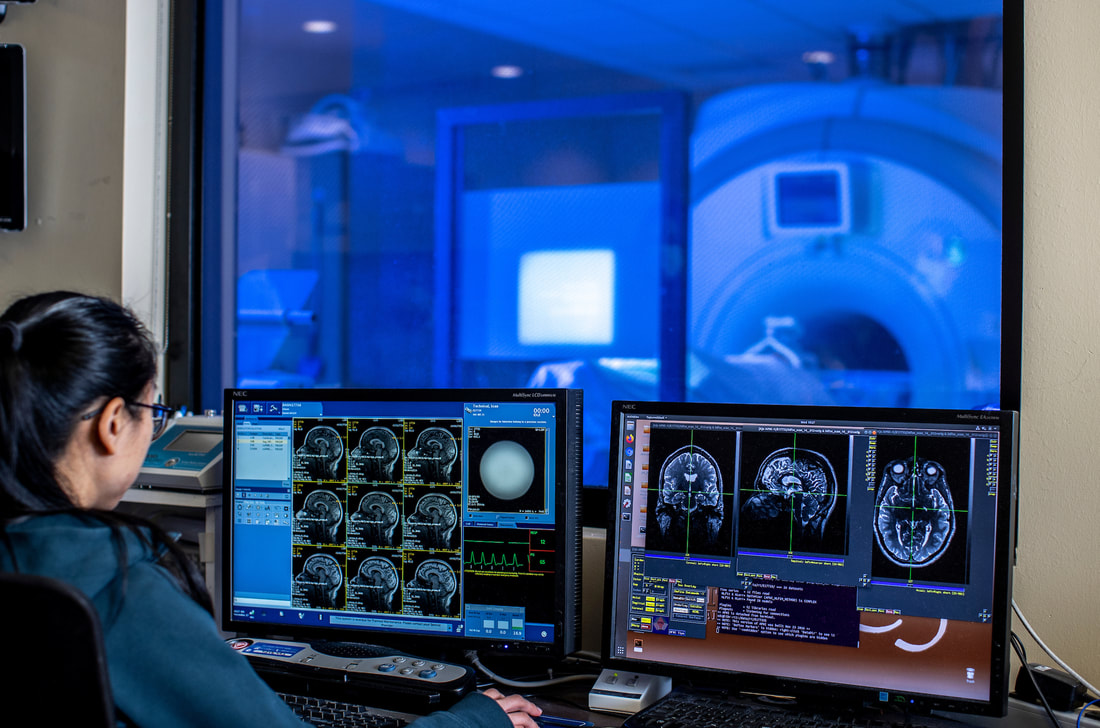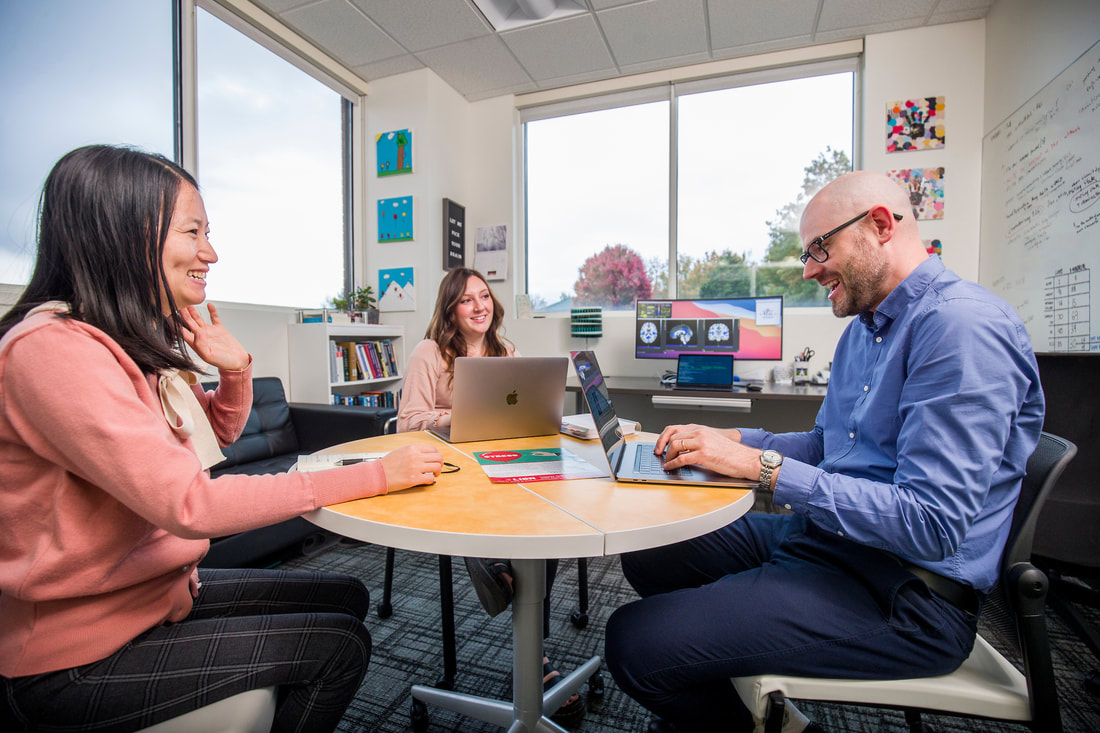Laboratory for Neuroscience-Informed Resilience in Early Life (The REaL Lab)
Our Research ApproachAbuse, neglect, and household dysfunction during childhood are perhaps the single strongest predictor of childhood-onset mental health disorders. This early onset is further associated with greater severity and chronicity of symptoms, and worse psychosocial and physical health outcomes in adulthood. Treatment of most commonly consequent mental disorders (mood and anxiety) presents an additional public health crisis. The current gold-standard interventions effectively treat about 50% of the affected youth, with a cumulative probability of relapse of 70% after 5 years. Therefore, our lab incorporates neuroscience tools to understand neurobiology of stress susceptibility and develops interventions that will effectively target the behavioral and neurobiological disruptions in at-risk youth to improve long-term outcomes.
Our current research explores the following questions:
Dr. Kirlic's research is currently funded by the Laureate Institute for Brain Research and National Institute for General Medical Sciences (NIGMS). |
Media Appearances |
Research Program Highlights
Main QuestionWhat are the neuroscience-informed behavioral interventions that successfully reverse the neurobiological and psychosocial consequences of early life adversity and prevent emerging psychopathology in youth?
|
ApproachWe employ multiple methods of inquiry, including subjective, behavioral, and physiological responses, functional neuroimaging, neurofeedback, and immune and hormone markers to test whether selected interventions target the relevant neurobiological systems.
|
Future DirectionsWe will aim to establish (1) the long-term effects of such interventions, (2) strategies that will optimize positive outcomes, and (3) which preventative interventions will work best for whom.
|
Scientific Background
Dr. Kirlic was born and raised in Bosnia and Herzegovina. He earned his B.A. in Psychology from Middlebury College in Vermont in 2005, where under mentorship of Dr. Adela Langrock his senior thesis focused on the cumulative effects of perceived war- and post-war stress on current psychological functioning. Following his undergraduate studies, he spent two years in the laboratory of Drs. Hans Breiter and Anne Blood at the Massachusetts General Hospital managing studies on addiction and movement disorder and learning neuroimaging methods and technology.
Taking a bit of leap of faith, he moved to Tulsa, Oklahoma in 2010 to pursue a PhD in clinical psychology at the University of Tulsa and Laureate Institute for Brain Research (LIBR). Under mentorship of Drs. Elana Newman and Ruben Alvarez, Dr. Kirlic focused on individual differences in neural responses to predictable and unpredictable threats, effects of prenatal drug exposure and postnatal adversity on biological stress responses in children, and effectiveness of interventions for youth survivors of natural disasters and war. His clinical practice in graduate school, as well as during his clinical residency at the University of New Mexico Hospitals and New Mexico VA, centered on the assessment and evidence-based treatment of mood, anxiety, emotion dysregulation disorders.
Dr. Kirlic returned to Tulsa for his postdoctoral fellowship at LIBR in 2016. Under mentorship of Dr. Robin Aupperle, he trained in the use of translational behavioral and neuroimaging methods to identify reliable predictors of resilience and treatment responses. Additionally, he had an active role in the delivery of the related evidence-based interventions.
In January of 2019, Dr. Kirlic became an Associate Investigator at LIBR. His current research focuses on consequences of early life adversity, emerging psychopathology in youth, neuroscience-informed preventive behavioral interventions, and multi-system responses during aversive conditions. In June 2022, Dr. Kirlic became an affiliate investigator at LIBR.
Taking a bit of leap of faith, he moved to Tulsa, Oklahoma in 2010 to pursue a PhD in clinical psychology at the University of Tulsa and Laureate Institute for Brain Research (LIBR). Under mentorship of Drs. Elana Newman and Ruben Alvarez, Dr. Kirlic focused on individual differences in neural responses to predictable and unpredictable threats, effects of prenatal drug exposure and postnatal adversity on biological stress responses in children, and effectiveness of interventions for youth survivors of natural disasters and war. His clinical practice in graduate school, as well as during his clinical residency at the University of New Mexico Hospitals and New Mexico VA, centered on the assessment and evidence-based treatment of mood, anxiety, emotion dysregulation disorders.
Dr. Kirlic returned to Tulsa for his postdoctoral fellowship at LIBR in 2016. Under mentorship of Dr. Robin Aupperle, he trained in the use of translational behavioral and neuroimaging methods to identify reliable predictors of resilience and treatment responses. Additionally, he had an active role in the delivery of the related evidence-based interventions.
In January of 2019, Dr. Kirlic became an Associate Investigator at LIBR. His current research focuses on consequences of early life adversity, emerging psychopathology in youth, neuroscience-informed preventive behavioral interventions, and multi-system responses during aversive conditions. In June 2022, Dr. Kirlic became an affiliate investigator at LIBR.










